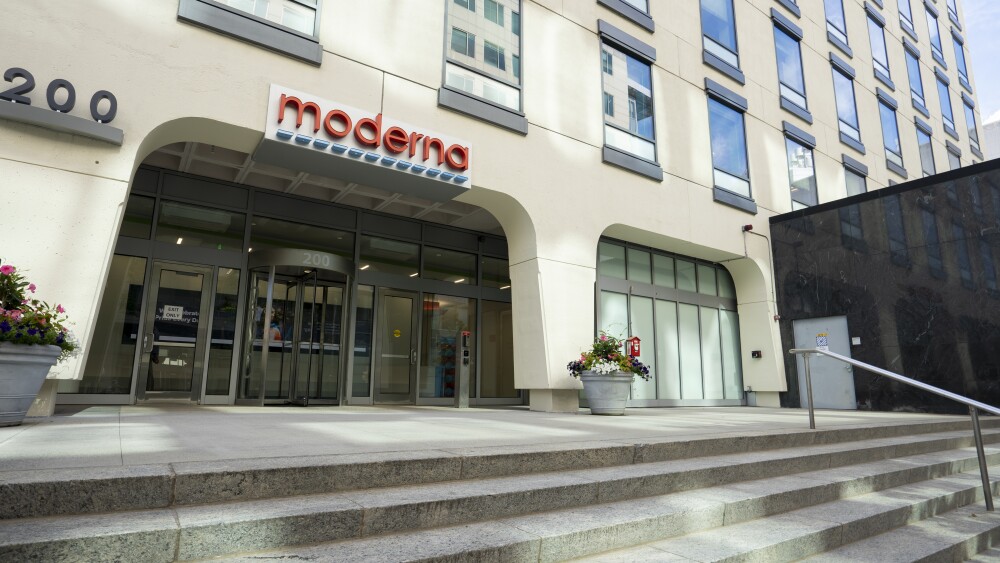Moderna on Thursday said its investigational mRNA-based therapy for methylmalonic acidemia has been selected for the FDA’s accelerator program for rare diseases, dubbed START.
Moderna on Thursday announced that the FDA has selected its investigational methylmalonic acidemia therapy mRNA-3705 for the agency’s Support for Clinical Trials Advancing Rare Disease Therapeutics pilot program.
First unveiled in September 2023, the FDA’s accelerator program for rare diseases—also known as START—is designed to give drugmakers “regular ad-hoc communication with FDA staff to address product-specific development issues,” such as trial design and choice of controls and patient populations. According to the START webpage, selected companies will also receive guidance regarding the use of non-clinical information to support their candidates as well as product characterization.
To be eligible for START, participating companies must be developing gene or cell therapies for neurodegenerative or genetic metabolic rare diseases which are “likely to lead to significant disability or death within the first decade of life,” according to the FDA.
Moderna’s mRNA-3705, which targets methylmalonic acidemia (MMA), fits the bill. MMA is a rare, life-threatening and heritable metabolic disorder characterized by the accumulation of acids and other toxic substances in the body, which in turn leads to metabolic crises and multi-organ damage.
The condition is often diagnosed within the first few months from birth and has a heavy mortality and morbidity burden. There are currently no approved treatments for MMA.
Most cases of MMA are caused by a deficiency in the MUT enzyme, which is found in the mitochondria and plays a crucial role in the breakdown of amino acids and fatty acids. Designed to be administered intravenously, mRNA-3705 addresses the underlying disease pathway in MMA by delivering a MUT-encoding mRNA molecule packed inside a proprietary lipid nanoparticle.
Moderna’s candidate, which has won the FDA’s Orphan Drug, Rare Pediatric Disease and Fast Track designations, is being evaluated in a Phase I/II open-label study. The investigational therapy is meant for patients aged one year of age and older.
Kyle Holen, head of development fortherapeutics and oncology at Moderna, said in a statement that the company is “excited” and “proud” that mRNA-3705 was selected for START, which will “enable enhanced communication with the U.S. FDA, resulting in acceleration of our development program.” Moderna is gearing up for a pivotal MMA study for mRNA-3705 this year.
“This selection highlights the promise of Moderna’s innovative mRNA platform beyond vaccines and the potential this novel medicine may have in addressing the serious and unmet medical needs of MMA,” Holed said.
Moderna now joins four other biopharma players that were also selected for START, which made announcements earlier this week.
Denali Therapeutics is participating with its investigational enzyme replacement therapy for mucopolysaccharidosis type IIIA, while Grace Science’s gene therapy GS-100 for NGLY1 deficiency will also be part of the accelerator program.
In addition, Larimar Therapeutics’ novel protein replacement therapy nomlabofusp for Friedrich’s ataxia and Neurogene’s developmental gene therapy NGN-401 for Rett syndrome have been selected for START.
Tristan Manalac is an independent science writer based in Metro Manila, Philippines. Reach out to him on LinkedIn or email him at tristan@tristanmanalac.com or tristan.manalac@biospace.com.






